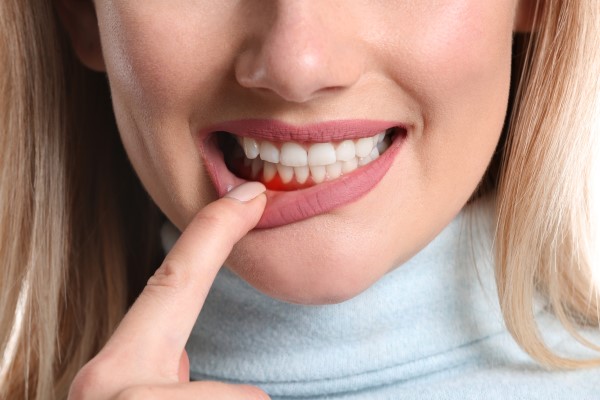The Importance of Oral Hygiene for Preventive Dentistry

Maintaining healthy teeth and gums relies heavily on preventive dentistry. Even though many treatments exist that can remove diseased tissue and repair damage, prioritizing good oral health can eliminate the need for many types of invasive dental work. Seeing a dentist at least once every six months is essential, but practicing good oral hygiene on a regular basis is just as important. By creating a healthy daily care routine, patients can prevent numerous unnecessary dental issues while strengthening their smiles.
Understanding tooth decay
Perhaps the most significant reason oral hygiene is important is that it can be very effective in preventing tooth decay. This is the most common type of dental problem, but it can be avoided or minimized with the right practices. Understanding the causes of tooth decay can help patients update their preventive dentistry routine accordingly.
Enamel erosion
The first step of tooth decay occurs when substances break down tooth enamel, the hard coating on teeth that encapsulates them while protecting the nerves and more delicate tissues. Injury or trauma can break this surface, but everyday substances can also wear it down over time. Acids and sugars are especially effective at deteriorating tooth enamel, eventually leading to cavities. These are present in almost all foods, including nutritious fruits and vegetables, although they are much more prevalent in:
- Soda
- Sticky candy
- Sugary beverages and juices
- Citrus fruits and products
- Most desserts
Failing to brush and floss on a daily basis allows harmful sugars and acids to stick on and between teeth, eventually resulting in enamel erosion. Eating or drinking too many sugary or acidic foods can expedite the process.
The role of bacteria
Once a breach in tooth enamel occurs, bacteria can now penetrate the interior tissues, destroying them and leading to cavities or holes in the teeth. While everyone has beneficial bacteria in their mouths, certain habits can create an imbalance, leading to more harmful bacteria and increased dental problems. Brushing, flossing, and using antibacterial mouthwash can help remove these microscopic troublemakers. Keeping hands and other foreign objects out of the mouth can also prevent excess bacteria from entering.
Complications from tooth decay
Cavities are very common. According to the American Dental Association, more than 80% of Americans will have developed a cavity at some point by the time they reach adulthood. However, just because cavities are the norm does not mean they should not be taken seriously.
When left untreated, tooth decay usually progresses at a rapid rate. In addition to pain and sensitivity, it may also cause structural damage to a tooth. Tooth decay can also cause gum disease, which is the inflammation of the gum tissues. Eventually, it can spread to other teeth, lead to infection, and even cause tooth loss.
The risks of poor oral hygiene
For people with busy schedules, taking the time to brush and floss each day can seem like a nuisance. However, just a few minutes of daily care can significantly improve oral health. At the same time, ignoring good dental practices can have unfortunate and even serious consequences.
Dental disease and treatment
A lack of preventive dental care can cause more than just minor cavities that need a filling. Patients with poor daily habits are more likely to experience serious tooth decay, resulting in the need for crowns and root canals. Others may have to deal with tooth loss, requiring bridges, implants, or dentures for treatment.
Gum disease can also be an issue, which requires more frequent dental cleanings and other potential treatments to avoid tooth loss and infection. Patients who develop this issue are also more at risk for other serious health conditions, including heart disease, stroke, diabetes, and arthritis.
Negative social effects
An unhealthy smile and poor oral hygiene can also have a significant impact on a person's confidence. Without good routine dental care, people are more likely to experience unsightly staining or discoloration, bad breath, and even missing teeth. Anything that prohibits a person's ability to smile and communicate freely can have a negative effect on their social and professional life.
Conclusion
To prevent cavities, gum disease, and many other oral health issues, oral hygiene must be taken seriously. Everyone should prioritize daily brushing and flossing, along with other positive lifestyle habits, to maintain healthy teeth and gums. Doing so can help patients avoid dental problems while also decreasing their risks for other serious health issues. By focusing on good oral hygiene and preventive dentistry, many people can enjoy healthier, stronger, and more beautiful teeth.
Request an appointment here: https://www.mytotaldentistry.com or call McCarthy Dentistry at (740) 546-5178 for an appointment in our Marietta office.
Check out what others are saying about our services on Yelp: Preventive Dentistry in Marietta, OH.
Recent Posts
Preventative dental care such as visiting the dentist is a huge cause of anxiety and stress in many patients. The thought of being in the examination chair and hearing the tools and possible irritation of your teeth and gums can be quite upsetting. However, going to the dentist regularly will eliminate those concerns as you…
Preventative dental care is essential for your oral health. If you have never been to the dentist, it can be hard to know what to do. Let's go over some of the best practices for diet and nutrition that you need to keep your teeth healthy and strong, so that not only are they easier…
Tooth enamel protects your teeth from harmful pressure, which means ensuring it is in great shape should be a routine in your preventative dental care. If not properly taken care of, the enamel can erode and make your teeth more susceptible to things like breaking, cracking, or chipping. Ultimately, this can be very painful and…
Preventative dental care has long been the focus of dentists and patients alike. Taking proactive steps to protect your teeth and gums not only helps you prevent tooth decay and gum disease but can also decrease your risk of developing other illnesses such as heart disease, stroke, cancer, and diabetes. Here’s how oral health affects…


